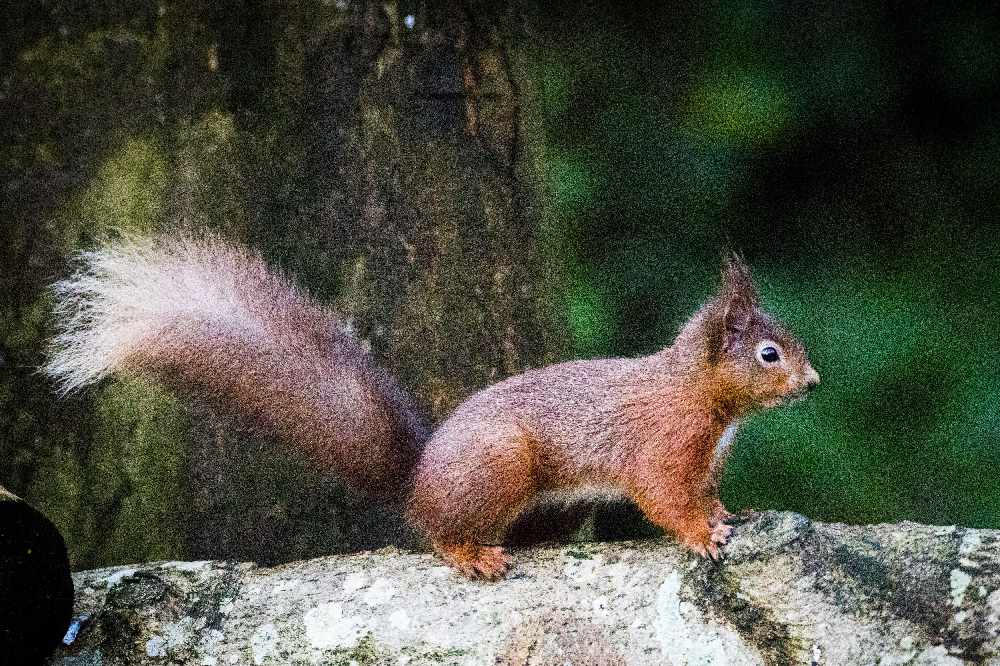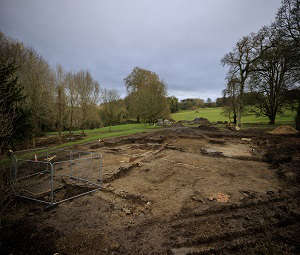
By Michael McHugh
Restoring a native predator is helping the red squirrel population rebound after decades of competition with their grey cousins, researchers said.
The pine marten preys on both but the invasive grey squirrel has been shown to be much more vulnerable, the Queen's University Belfast study showed.
When pine marten scent was applied to feeding stations across Northern Ireland, red squirrels showed increased vigilance for danger while their competitors did not.
Queen's University said: "This is likely a response to red squirrels sharing a landscape with pine marten over a long period of time, with grey squirrels being relative newcomers to the threat that the pine marten poses."
Following introductions in the nineteenth and twentieth centuries, the grey replaced the native red across much of its former range in the UK and Ireland.
Pine martens, a recovering predator in the UK and Ireland, are naturally controlling introduced grey squirrels, while at the same time helping to secure the survival of native red squirrel populations.

Researchers found that native red squirrels showed clear behavioural responses to pine marten scent, while grey squirrels did not.
Reds visited the feeders less often when pine marten scent was applied.
Queen's added: "Grey squirrels showed a lack of behavioural response to the cues of the pine marten, making them highly vulnerable to predation.
"This assists in explaining the higher occurrence of grey squirrels than red squirrels in the diet of the pine marten, and why grey squirrel populations are declining wherever the pine marten recovers.
"If invasive species lack behavioural responses to recovering native predators with whom they do not share evolutionary history; the ongoing predator recovery in Europe could have immense potential to restore and regulate ecosystems our fractured ecosystems."
The study was funded through an online public appeal and published on Wednesday.
Joshua Twining, lead-author and PhD student at School of Biological Sciences at Queen's, said: "Grey squirrels, introduced to the UK from North America, have only shared the landscape for a mere blink of the eye on an evolutionary timescale, and thus currently appear to be naive to the threat of predation by this native predator.
"In a modern world that is daunted by environmental crisis and ecological collapse, it is more important than ever to recognise the potential of nature, its resilience and ability to provide solutions to our mistakes.
"This is especially pertinent in the UK and Ireland where we currently live in a highly-managed, unnaturally predator-free world."
He said historic human activities have led to the loss of predators at the top of the food chain, including the wolf and the lynx.
The UK government spends £1.7 billion a year to control invasive species.
Mr Twining said: "More research is required, but our initial findings add to the evidence suggesting that an alternative measure could involve restoring our native predators to naturally rebalance the ecosystem."
Red squirrels have declined since the North American grey squirrel was introduced in the 1870s.
It out-competes the red and carries disease.
There are approximately 140,000 reds in the UK and 2.5 million greys, the Wildlife Trusts said.


 Remains of 300-year-old building complex unearthed by chance on country estate
Remains of 300-year-old building complex unearthed by chance on country estate
 Fresh Met Office warning for icy conditions across Northern Ireland
Fresh Met Office warning for icy conditions across Northern Ireland
 Community still in shock over deaths of father and son, funeral told
Community still in shock over deaths of father and son, funeral told
 Hugo Duncan dedicates MBE honour to late mother who raised him on her own
Hugo Duncan dedicates MBE honour to late mother who raised him on her own
 Police concern over large gathering of youths at Belfast interface
Police concern over large gathering of youths at Belfast interface